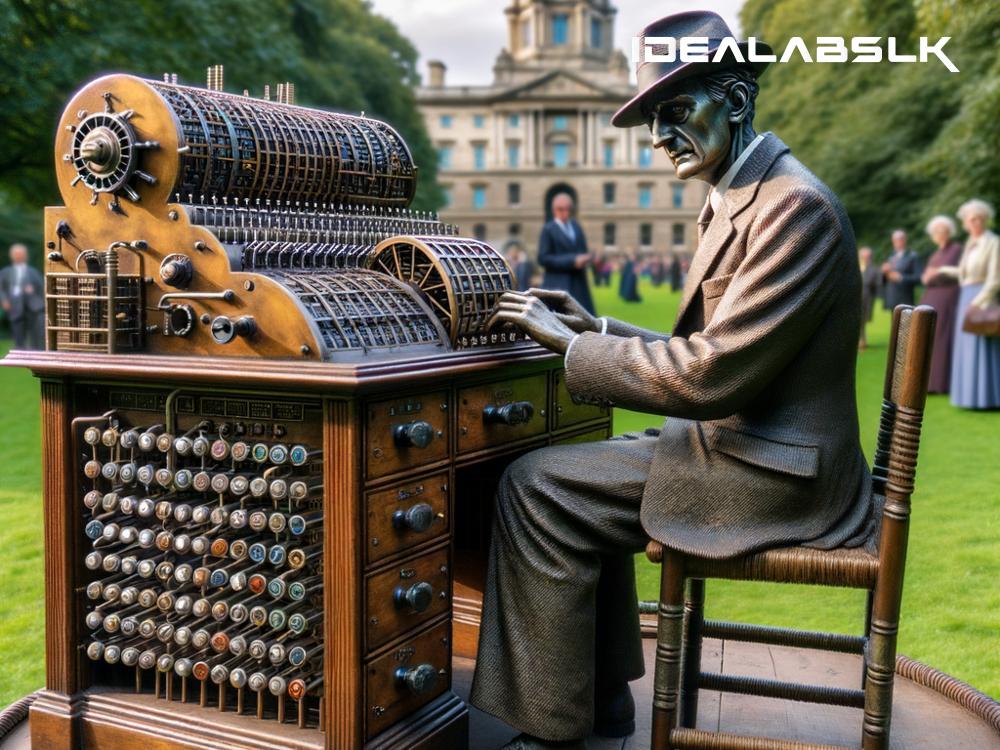The Role of Alan Turing in Modern Computing: Understanding the Genius Behind the Screen
In today's digital world, it's hard to imagine life without computers. From smartphones to laptops, our modern lives are deeply intertwined with technology. But how did we get here? The answer lies partly in the genius of Alan Turing, a name that, while not as universally recognized as Steve Jobs or Bill Gates, played a pivotal role in shaping the world of computing as we know it.
Who Was Alan Turing?
Alan Turing was a British mathematician, logician, and cryptanalyst born on June 23, 1912. While his name may not ring a bell for everyone, his contributions to computer science and artificial intelligence are monumental. He is often referred to as the father of theoretical computer science and artificial intelligence, not without good reason.
Cracking the Code: World War II
Turing's most famous achievement came during World War II when he worked for the British government's code-breaking department. He spearheaded a team at Bletchley Park, which developed the Bombe machine. This device was critical in decoding the Enigma, the seemingly unbreakable code used by Nazi Germany to encrypt military communications. Turing's work is credited with significantly shortening the war and saving countless lives, showcasing the critical role of computing in global security and politics.
Conceptualizing the Modern Computer
Post-war, Turing's focus shifted toward computing machinery and intelligence. In 1936, before the technological capability to build a computer even existed, Turing proposed an abstract machine known as the Turing Machine. This invention was revolutionary. It wasn't a physical entity but a concept that outlined the principles of a universal machine capable of solving any problem given enough time and resources. This concept laid the foundational architecture for modern computers, emphasizing the machine's ability to follow a set of instructions (or program) to perform specific tasks.
The Turing Test: Blurring Lines Between Human and Machine
Alan Turing was also fascinated by the potential for machines to exhibit intelligent behavior. In 1950, he proposed what is now known as the Turing Test in his paper "Computing Machinery and Intelligence." The test provides a criterion of intelligence for a machine: if a machine can carry on a conversation that is indistinguishable from a conversation with a human being, then it could be considered intelligent. This concept is still a significant area of discussion and research in artificial intelligence today, demonstrating Turing's lasting impact on the field.
Turing's Legacy in the Digital Age
Sadly, Alan Turing's life was cut short. He died in 1954, a victim of the era's discriminatory laws against homosexuality. It wasn't until decades later that Turing's contributions were fully recognized and celebrated. In 2013, Queen Elizabeth II posthumously pardoned him, acknowledging the injustice he faced.
Today, Turing's work is the bedrock upon which the edifice of modern computing stands. Programming languages, software development, artificial intelligence, and even the Internet owe a debt to his brilliance and vision. The Turing Machine concept underlines every operation performed by today's computers, from the simplest calculators to the most complex supercomputers.
The Turing Award
In recognition of his monumental contributions, the Association for Computing Machinery (ACM) established the Turing Award in 1966. Often referred to as the "Nobel Prize of Computing," it is given annually to individuals who have made substantial contributions of lasting importance to computing. This award stands as a testament to Turing's enduring legacy in the field of computer science.
Beyond Computing: Turing's Impact on Society
The impact of Alan Turing's work transcends technology; it prompts a societal reflection on the value of diversity and inclusion in science and technology. Turing's life and contributions remind us of the extraordinary potential that can be unleashed when individuals are allowed to live and work freely, irrespective of their personal background or lifestyle choices.
Conclusion
Alan Turing's role in modern computing is not just a historical footnote. It is a powerful narrative about the capacity of human intellect to reshape the world. Through his pioneering work, Turing set the stage for the digital revolution, transforming both how we live and how we think about intelligence and capability. As we navigate the complexities of the digital age, Turing's legacy serves as both a beacon of innovation and a call to appreciate the diverse minds that drive technology forward. Alan Turing, though no longer with us, continues to inspire and challenge the very fabric of computing and artificial intelligence, ensuring his place in history as a true pioneer of the digital era.

